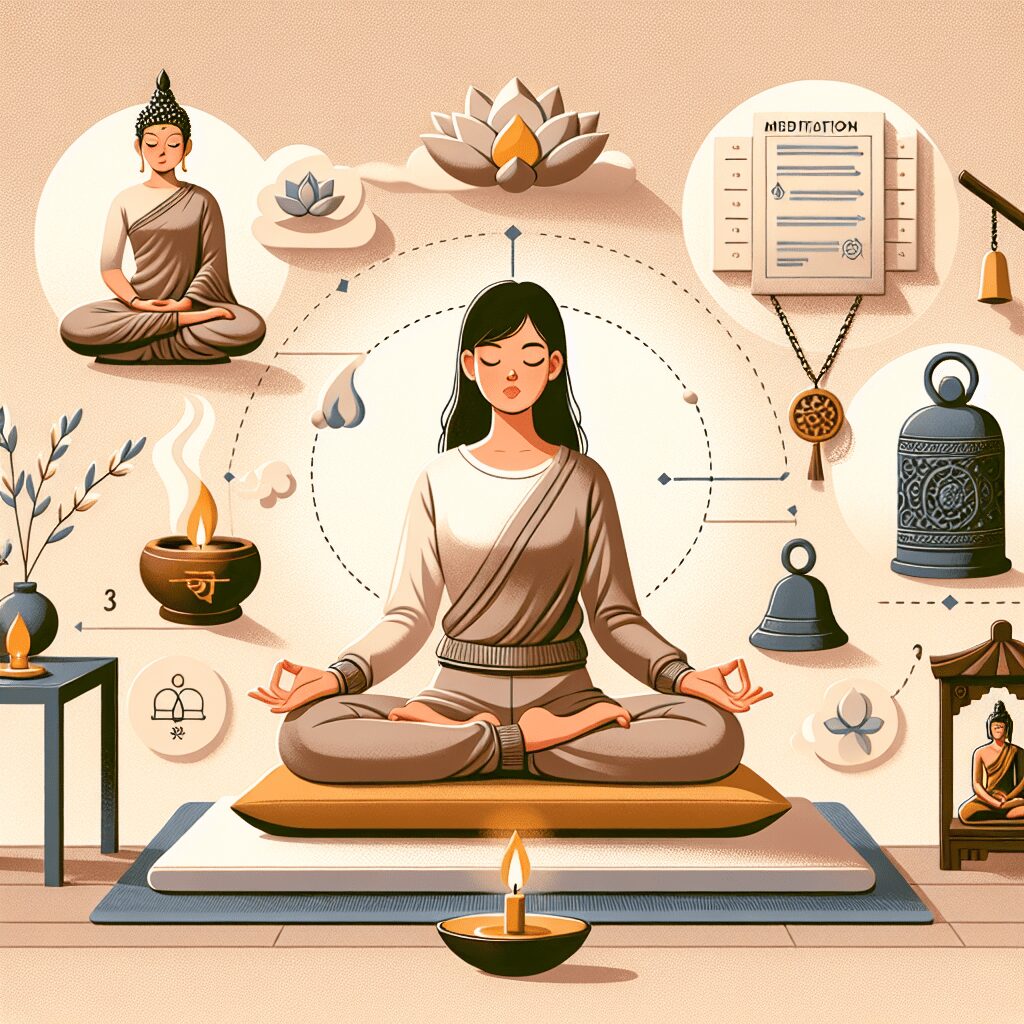
Prioritize your mental well-being daily. Enhance your life by nurturing your mental health with the Smart Meditation app. Break free from stress, alleviate anxiety, and enhance your sleep quality starting today.
How Old Is Meditation Practice?
Unlocking the Ancient Secrets of Meditation: A Journey Through Time
Meditation, often visualized as the realm of serene faces and tranquil minds, is not a new kid on the block. It’s an ancient practice, deeply rooted in the tapestries of various cultures and civilizations. But just how old is this practice that has taken the modern world by storm, you ask? Let’s embark on a historical journey to uncover the age-old secrets of meditation, exploring its origins and how it has morphed into the contemporary forms we recognize today.
The Dawn of Meditation: Tracing its Origins
Meditating on meditation’s inception might take us back further than you’d imagine. It’s like opening a time capsule, only to find that there’s no definitive “start date” stamped on it. However, historians and scholars agree that the practice is well over thousands of years old. The earliest written records pinpoint meditation’s birth to the ancient civilizations of India, documented in the Vedas — a large body of religious texts — around 1500 BCE. That’s a whopping 3,500+ years ago! But hold your horses; there’s a twist in the tale. Some archaeological findings suggest that humans might have been engaging in meditation-like practices even earlier, dating back to roughly 5,000 to 3,500 BCE.
A Cultural Melting Pot: The Spread and Evolution of Meditation
As the epochs rolled on, meditation didn’t just sit tight in its place of origin. Nope, it was on the move, spreading its tranquil wings across continents and cultures. Here’s a quick rundown:
-
Buddhism and Meditation: Around the 6th to 5th centuries BCE, meditation took a significant turn with the teachings of Siddhartha Gautama (Buddha) in India. It became integral to Buddhism, emphasizing mindfulness and concentration.
-
The Zen of It: Fast forward a few centuries, and Zen Buddhism introduces a fresh meditative flavor in China and Japan, focusing on sitting meditation, also known as Zazen.
-
Meditation Goes West: The 20th century saw meditation hopping onto the globalization train, making major headway into Western cultures. Thanks to influential figures and the burgeoning interest in holistic wellness, meditation morphed from an esoteric ritual to a mainstream practice.
Why the Age-Old Practice Still Rocks Today
In today’s fast-paced, always-on world, meditation has emerged as a beacon of calm and clarity. But it’s not just about chilling out. Here are a few reasons why this ancient practice is more relevant than ever:
-
Stress-Buster Extraordinaire: Meditation is a proven antidote to stress, helping reduce cortisol levels and fostering a state of relaxation.
-
Mental Clarity and Focus: Wave goodbye to brain fog. Regular meditation practice sharpens focus and enhances cognitive functioning.
-
Emotional Well-being: It’s like a spa for your emotions, helping to alleviate anxiety and depression, and boosting overall happiness.
-
Physical Health Perks: From lowering blood pressure to improving sleep quality, meditation has a laundry list of benefits for the body.
In the grand tapestry of human practices, meditation stands out as a vibrant thread, weaving through centuries and cultures. Its age-old wisdom continues to resonate with millions worldwide, proving that some things just get better with time. Whether you’re a seasoned meditator or a curious newbie, diving into the depths of this practice might just be the key to unlocking a world of tranquility and insight. So, why not give it a whirl? After all, it’s been around the block a few times.





